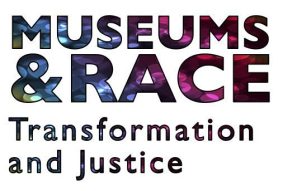It’s time to challenge and transform the institutional policies and systems that perpetuate structural racism and oppression in museums. Coming to understand and recognize entrenched racism is a difficult and potentially contentious undertaking—but also a necessary step. To help advance that work, a group of 24 museum professionals is convening for a three-day conversation on race and racism in museums. Our statement of purpose explains more.
Where did the idea come from?
The convening in Chicago grew out of a conversation about museum response to Ferguson hosted by The Museum Group (TMG) during the American Alliance of Museums meeting in Atlanta in April 2015. The conversation drew a multiethnic, multigenerational group of colleagues, many of whom were meeting for the first time. As the 90-minute session came to a close, it was clear that there was more to say—and lots of work to be done. A group of TMG members proposed a new format to build on the momentum: a convening. The result is Museums and Race: Transformation and Justice.
Who are the participants?
Twenty-four museum professionals from a variety of ethnic, racial, and cultural backgrounds, of all ages, and at all career stages participated in the convening. They all share the desire to bring about change in our field. Many attended the Atlanta conversation and, with TMG, were determined to sustain the momentum.
To include just 24 was a daunting challenge, but the planners worked hard to balance inclusiveness with practical choices. The desire for an intimate dialogue, as well as TMG’s budget, limited the size of the group. Using criteria that the entire planning team endorsed, the team looked for listeners and consensus builders, visionaries with a sense of what equity looks like, and communicators with skills that will help in disseminating the outcomes.
What happened during the convening?
This gathering is called a convening because people are coming together in the spirit of dialogue based on radical trust. The approach invites each person to listen to and learn from the perspectives of the others, especially those of color. The facilitated dialogue will be a fluid group process. We created an action plan with items that can be implemented in the next 6 to 12 months, with an eye toward long-term, sustained attention to change.
How will the convening share its work?
The planners know that many people and institutions that are doing important work will not be with us physically in Chicago. We have created a convening blog to stay in touch about the convening’s process, and all are welcome to contribute.
What happens next? How and when can others participate?
The convening is not a one-time event. An important part of the group’s work is to figure out how to expand and continue this critical dialogue so that it involves many others across the country and in all types of museums. After the convening, we’ll share a vision and action plan with a wide audience. As we begin, we’re not sure what the outcomes or actions will be. But we are sure about our commitment to broad and open communication about whatever develops so that coalitions and partnerships emerge to carry the work forward.
What is the Gathering at AAM?
The Museums & Race Gathering at AAM is a direct result of the Museums & Race convening in Chicago where participants expressed interest in extending the exchange and dialogue to involve a broader group of museum workers and leaders. The Gathering will be an opportunity to explore the ways oppression, privilege, self-care for people of color, and intersectionality should be addressed in museums. You can find out more information here.
What does The Museum Group sponsorship mean?
The Museum Group is a consortium of independent museum consultants who believe in the power of deep listening and dialogue to activate change. TMG provided support for meeting space, facilitation, participants’ accommodations and meals, some travel assistance, and dissemination of the findings and action plan.

One thought on “Frequently Asked Questions”